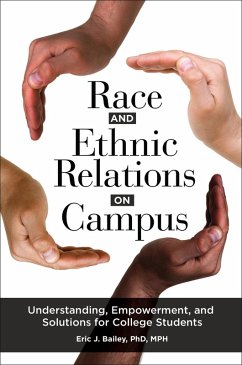Can college students confront race relations issues directly and make positive changes? Yes, they can. This book provides a fresh, practical approach to addressing these issues-individually and collectively-to ignite a positive revolution in race and ethnic relations. As racial and ethnic incidents continue to occur at college campuses across the nation, an esteemed African American professor who teaches in the heart of a region that has seen some of the most volatile racial incidents in American history breaks the uneasy silence to respond to growing concerns from undergraduate students. In Race and Ethnic Relations on Campus: Understanding, Empowerment, and Solutions for College Students, Eric J. Bailey presents a new approach to addressing and better understanding the major controversial issues associated with race and ethnic relations for today's college students. This book confronts commonplace race relations issues directly and sets forth a completely different way of addressing these problems that empowers today's college students to take charge and start to effect change-to do something about racially charged conflict rather than to simply talk about it. The chapters describe how race and ethnic relations issues typically arise on college campuses, share insight into how national incidents affect college students' reactions to incidents on their own campus, and identify the negative consequences of poor race relations as well as describe the positive effects of good race relations.
Bitte wählen Sie Ihr Anliegen aus.
Rechnungen
Retourenschein anfordern
Bestellstatus
Storno









